Representatives from the four LARs and the ACR discussed the future of the specialty during a panel session at the inaugural Global Summit on Wednesday, Nov. 3.
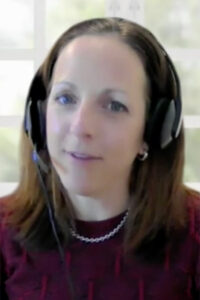
The special session, The Future of Rheumatology Around the Globe, featured forward-looking perspectives from the ACR, the Pan-American League of Associations for Rheumatology (PANLAR), the European Alliance of Associations for Rheumatology (EULAR), the Asia-Pacific League of Associations for Rheumatology (APLAR), and the African League Against Rheumatism (AFLAR). The session can be viewed by registered meeting participants through March 11, 2022.
“One of the only upsides to COVID-19 was fostering a virtual community,” said Laura Cappelli, MD, MHS, Assistant Professor of Medicine at Johns Hopkins School of Medicine, who represented the ACR during the session. “We have had to learn how to use technology to connect with our patients and colleagues. Now we can work on developing new models for care and education delivery.”
Rheumatologists in other regions have also expanded their use of technology, including social media, to connect with patients, colleagues, and other stakeholders. The COVID-19 pandemic accelerated changes that were already under way.
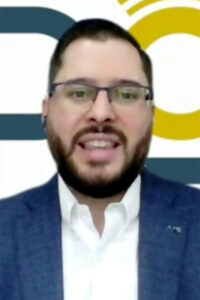
“Social media is our best ally and our worst enemy,” said Sebastian Herrera Uribe, MD, Associated Professor of Rheumatology at Universidad CES in Medellin, Columbia, who represented PANLAR.
“Rheumatology has a strong message, but it can be too academic, even for our colleagues in care,” he continued. “We have to learn to translate what we do for our patients, other providers, government, and for the public. We have to provide accurate, useful information in a way that goes viral. If we don’t, we will lose against misinformation and fraud.”
In Africa, technology adoption is improving, according to Uyiekpen Ima-Edomwonyi, MD, Consultant Rheumatologist at Lagos University Teaching Hospital in Nigeria. Internet penetration in urban centers was high pre-COVID and is accelerating in rural areas, said Dr. Ima-Edomwonyi, who represented AFLAR in the session.
“As a result of the pandemic, we have seen an increase in the use of social media across the continent,” he said. “We need to be a part of that communication, and not just with 60-minute videos. We have to evolve our messages for the TikTok generation to communicate on multiple levels and audiences. There is an enormous future for 90-second video messages on rheumatology.”
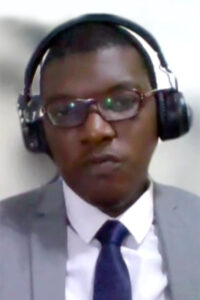
But the reaction to virtual communication and new technology platforms has not been universally positive.
“Younger rheumatologists are very tech savvy and learning to practice as a community,” said Anthony Sammel, PhD, MBBS, Senior Conjoint Lecturer at Prince of Wales Hospital, University of New South Wales in Sydney, Australia.
“But the quality of medical care through telehealth is not always up there where it should be,” added Dr. Sammel, who represented APLAR. “A lot of patients have been struggling with telehealth, especially in high examination specialties like rheumatology. At the same time, you can’t use telehealth as an excuse to reduce the level of care provided to patients.”
In Europe, information sharing across silos is increasing, reported Kim Lauper-Luong, MD, a rheumatologist and researcher at Geneva University Hospitals in Switzerland, who represented EULAR.
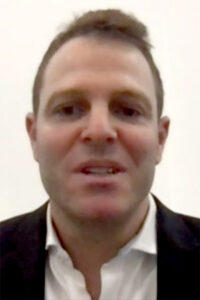
“EULAR has made tremendous efforts to share data more widely and more quickly with COVID-19,” she said. “The pandemic has shown us all that we need to share more widely. It is important to not do research in tiny cohorts with limited results but to share our cohorts, share our research programs, and improve information access with models like open access journals.”
The panel agreed that awareness is rheumatology’s primary challenge. Among the questions that need to be addressed for those outside the profession: What is rheumatology, what do rheumatologists do, why should we fund it? Rheumatology’s future depends on getting involved and raising awareness.
“This is an ecosystem challenge,” Dr. Ima-Edomwonyi said. “We need to encourage more medical professionals to go into rheumatology. We need to encourage more nurses and primary care providers to learn about rheumatology, because if you don’t know rheumatoid arthritis or vasculitis, you can’t look for it and diagnose it. And we need to bring rheumatology into our national discourse by getting involved in government to get rheumatology medications on drug formularies, to get rheumatology into national budgets.”
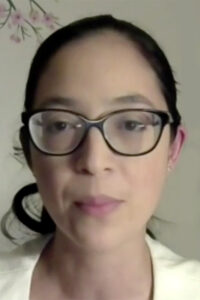
Dr. Uribe said the most important change rheumatologists must make is to get actively involved in public life.
“We cannot be just a scientific community. We need to get engaged, not just with our universities but with our governments,” he said. “If we don’t participate, if we don’t tell decision makers how we benefit real people, nobody will. And then people who don’t know about rheumatology will take our seats at the table.”
But involvement in government is just one step, noted Dr. Cappelli.
“Government is not the only stakeholder to engage with,” she said. “You need to partner with nongovernmental organizations, industry, and other stakeholders to improve access to rheumatology care.”
The message from Australia was even more inclusive.
“Our association has become a lobbying group for the profession, and not just with government,” Dr. Sammel said. “Maybe we can create a global rheumatology body to talk with industry, to advocate on a global basis, to improve equity in access to care.”
EULAR faces similar challenges in awareness and the resulting disparities in access. Drug pricing is one of the most obvious disparities, Dr. Lauper-Luong said. Different countries and formularies treat rheumatology and rheumatology medications very differently. Boosting awareness of the value of rheumatology care and the cost of inadequate access can help.
“We have many resources we can, and should share more effectively between countries,” she said. “We still need to get our message out to non-rheumatologists, to general practitioners, to the public. Patients don’t always know their rheumatic disease is something you can treat. We need to share much more.”
ACR CONVERGENCE ON DEMAND
Meeting content can be viewed on the virtual platform by registered meeting participants through March 11, 2022. If you were unable to attend the live portion of the virtual meeting, an On-Demand All-Access Pass is still available for purchase.
